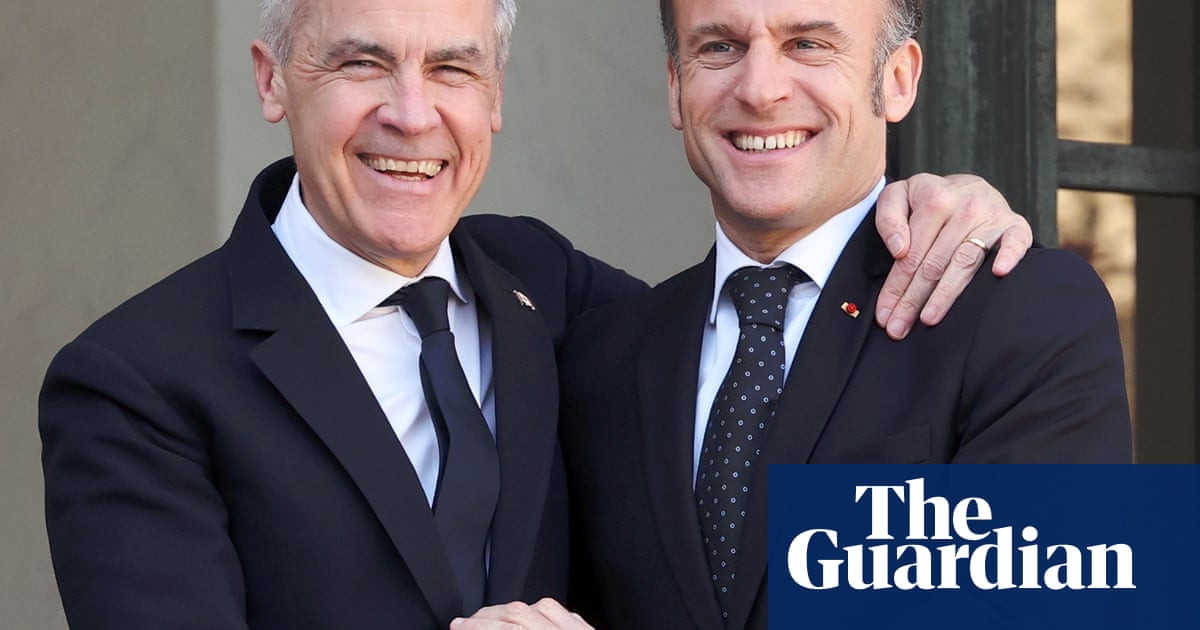Joachim Streit has never stepped foot inCanada. But that hasn’t stopped the German politician from launching a tenacious, one-man campaign that he readily describes as “aspirational”: to have the North American country join the EU.
“We have to strengthen the European Union,” said Streit, who last year was elected as a member of the European parliament. “And I think Canada – as itsprime minister says– is the most European country outside of Europe.”
Streit had long imagined Canada as a sort of paradise, home to dense forests that course with wide, rushing rivers. But after Donald Trump returned to power,launchingmuch of the world into a trade war andturning his backon America’s traditional allies, Streit began to cast the northern country in a new light.
What he saw was a relatively unexplored relationship, one that could prove mutually beneficial as the world grapples with rapidly reshaping global dynamics. “Canadians have seen their trust in the US undermined, just as we have inEurope, following President Trump’s actions,” he said. “We need to strengthen the ties that bind us to our friends.”
While he admitted that the possibility of Canada as a full member of the EU “may be aspirational for now”, he wondered if it was an idea whose time had come.
“Canada would be a strong member,” he said. “If Canada would be a member of the EU, itwould rank4th in terms of GDP. It’s part of Nato. And 58% of (working-age) Canadianshavecollege degrees.”
Canada also hasvast energyreserves – an asset that could prove useful to the bloc, which is still strugglingto wean itselfoff Russian gas, he added.
Since launching his campaign last month, Streit has become the most visible proponent of an unlikely proposition that has been gaining traction since Trump began floating the idea of Canadaas the 51st state.
In late January, a former foreign minister of Germany, Sigmar Gabriel, called for Canada to be invited into the EU. “They are more European than some European member states anyway,”he toldGermany’s Pioneer Media.
Media outlets on both sides of the Atlantic have delved into the idea, while a February poll of 1,500 Canadians found 44% of thembelieved Canada should look into joining the EU.
In March, however, a European spokespersonappeared to pour cold wateron the suggestion, citing an article in the EU treaty that specifies only European states can apply to join the EU.
Streit brushed off the technicality, pointing to France’soverseas territories. “Those are also not in Europe, but those islands belong to the European Union,” he said. Cyprus, consideredEU territorybut located geographically in west Asia, was another example.
And if one wanted to get technical, Canada was – albeit in a minuscule way – connected geographically to Europe, he said. “Greenland, which belongs to Denmark, shares a border with Canada,” he said, pointing to thedivide that runsthrough the uninhabited half-mile square Hans Island.
In April, Streitsubmitteda written question to the European parliament, asking whether the treaty article stipulating that states must be European could be interpreted in a way that could allow for Canadian membership or, barring that, if it could be legally revised. He has yet to receive a response.
Undaunted, he sent a letter to two EU commissioners calling for a sort ofpolitical Erasmusto be launched between the bloc and Canada. What he envisions is a professional exchange programme that would allow EU officials to better grasp the nuances of Canadian federalism and Canadians to get a sense of the workings of European institutions.
“It would serve as both a symbolic and practical step toward deeper integration,” he said, one that could build on existing ties such as theEU-Canada trade dealand Canada’sparticipationin the EU’sflagshipscience research programme, Horizon.
Since launching the campaign, he’s been in constant contact with Canadians; meeting twice with one of Canada’s high-ranking envoys to the EU and meeting with a Brussels-based association that promotes Canada-EU trade.
As news spreads of his efforts, his office has received a handful of emails of support. Some have offered up their own thoughts on how to skirt around Canada’s geographic location; one recent email laid out what the writer described as a “killer argument”, pointing out that as part of the Commonwealth Canada was tied to the UK and, by extension, Europe.
Streit took it one step further. “And who is the head of Canada?” he asked, pointing toKing Charles.“And he’s a European.”
Streit said he was well aware that, for all his efforts, the idea may prove to be impossible. Even so, he hoped that the moment could be seized on to at least hammer out the kind of deep ties the bloc has with countries such as Norway or Switzerland.
“Sometimes in history, the windows of opportunity open and close again,” he said. “And sometimes, the windows of opportunity are open only for a brief moment.”
